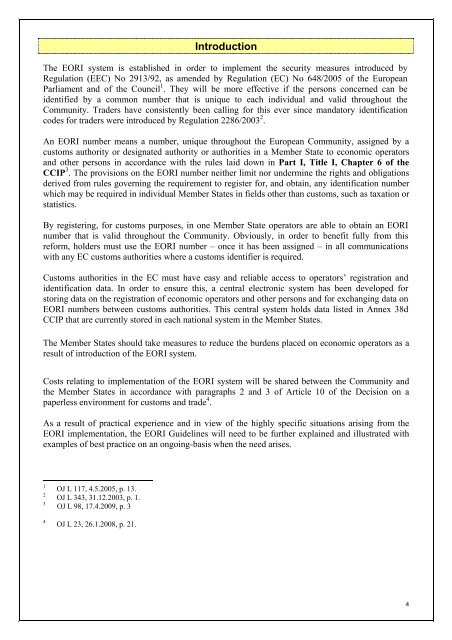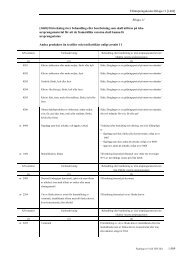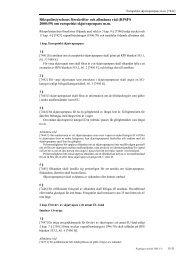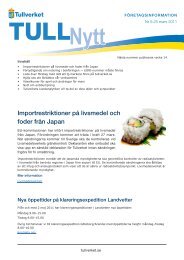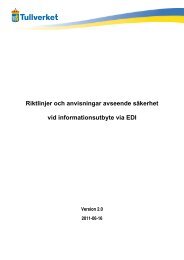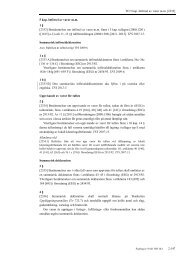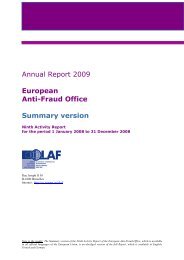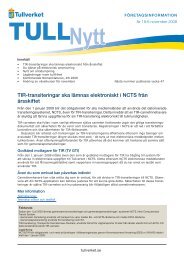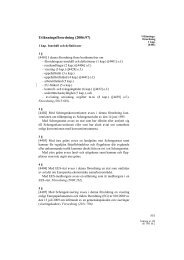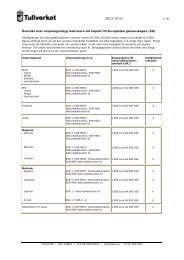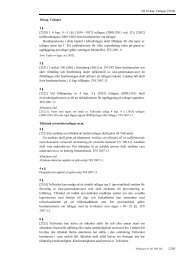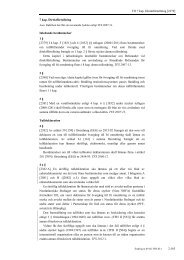EORI Guidelines - European Commission - Europa
EORI Guidelines - European Commission - Europa
EORI Guidelines - European Commission - Europa
You also want an ePaper? Increase the reach of your titles
YUMPU automatically turns print PDFs into web optimized ePapers that Google loves.
IntroductionThe <strong>EORI</strong> system is established in order to implement the security measures introduced byRegulation (EEC) No 2913/92, as amended by Regulation (EC) No 648/2005 of the <strong>European</strong>Parliament and of the Council 1 . They will be more effective if the persons concerned can beidentified by a common number that is unique to each individual and valid throughout theCommunity. Traders have consistently been calling for this ever since mandatory identificationcodes for traders were introduced by Regulation 2286/2003 2 .An <strong>EORI</strong> number means a number, unique throughout the <strong>European</strong> Community, assigned by acustoms authority or designated authority or authorities in a Member State to economic operatorsand other persons in accordance with the rules laid down in Part I, Title I, Chapter 6 of theCCIP 3 . The provisions on the <strong>EORI</strong> number neither limit nor undermine the rights and obligationsderived from rules governing the requirement to register for, and obtain, any identification numberwhich may be required in individual Member States in fields other than customs, such as taxation orstatistics.By registering, for customs purposes, in one Member State operators are able to obtain an <strong>EORI</strong>number that is valid throughout the Community. Obviously, in order to benefit fully from thisreform, holders must use the <strong>EORI</strong> number – once it has been assigned – in all communicationswith any EC customs authorities where a customs identifier is required.Customs authorities in the EC must have easy and reliable access to operators’ registration andidentification data. In order to ensure this, a central electronic system has been developed forstoring data on the registration of economic operators and other persons and for exchanging data on<strong>EORI</strong> numbers between customs authorities. This central system holds data listed in Annex 38dCCIP that are currently stored in each national system in the Member States.The Member States should take measures to reduce the burdens placed on economic operators as aresult of introduction of the <strong>EORI</strong> system.Costs relating to implementation of the <strong>EORI</strong> system will be shared between the Community andthe Member States in accordance with paragraphs 2 and 3 of Article 10 of the Decision on apaperless environment for customs and trade 4 .As a result of practical experience and in view of the highly specific situations arising from the<strong>EORI</strong> implementation, the <strong>EORI</strong> <strong>Guidelines</strong> will need to be further explained and illustrated withexamples of best practice on an ongoing-basis when the need arises.1234OJ L 117, 4.5.2005, p. 13.OJ L 343, 31.12.2003, p. 1.OJ L 98, 17.4.2009, p. 3OJ L 23, 26.1.2008, p. 21.4


